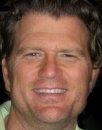Before I begin, I want to make something crystal clear. I've always despised rules, I've always resisted structure and I've always had disdain for authority. Always have. That being said, I will now share with you how I changed this destructive way of thinking. This method has proven to be a nice spring board in a self chosen path to enlightenedment. Once these staeps are completed, you will have the right to determine your recovery plan as needed.
The many faces of bipolar disorder can be terrifying. Not only to those diagnosed, but especially to our friends, family and loved ones. If not taken seriously, our lives can quickly spin out of control. If not treated properly, bipolar disorder can be fatal.
After being diagnosed w/ Bipolar II in 1997, I spent the better part of three years 'dancing around' the idea of sobriety. My recreational abuse of drugs and alcohol had been a hobby for most of my life. It was my playground……my outlet….my escape. Work hard, play hard. And play hard I did.
I was first introduced to the 12 step program in 2000. My friends and family had seen/heard enough and shipped me off to rehab via an intervention. I actively participated in ‘the program’ at first….jumping from step to step. Once complete, I felt like a new man. Thinking I could handle my recovery on my own, I would discontinue ‘working the steps”. And sure enough, like clockwork, I would fall back into my old ways.
I’m not here to preach. I’m not here to judge. I’m not going to tell you go to meetings, engage in a group hug and save the world. It’s taken me 9 years to finally appreciate the principles of the 12 step program and I know it's difficult. As Dr Wayne Dyer says, “we must change our thoughts in order to change our lives”. After years of procrastination and ignorance, I can honestly say the principles of the 12 step program are directly responsible for my survival of bipolar disorder. You can do this. It does work. And it will work for you.
I’ve modified the language in order for it to be less offensive and more applicable to bipolar disorder.
1. We admitted we were powerless over bipolar disorder - that our lives had become unmanageable.
2. Came to believe that a power greater than ourselves could restore us to sanity.
3. Made a decision to turn our will and our lives over to the care of our Higher Power.
4. Made a searching and fearless moral inventory of ourselves.
5. Admitted to our Higher Power, to ourselves and to another human being the exact nature of our wrongs.
6. Were entirely ready to have our Higher Power remove all these defects of character.
7. Humbly ask our Higher Power to remove our shortcomings.
8. Made a list of all persons we had harmed, and became willing to make amends to them all.
9. Made direct amends to such people wherever possible.
10. Continued to take personal inventory and when we were wrong promptly admitted it.
11. Sought through prayer and meditation to improve our conscious contact with our Higher Power, praying only for knowledge of our purpose and the power to carry that out.
12. Having had a spiritual awakening as the result of these steps, we tried to carry this message to those suffering from bipolar disorder and to practice these principles in all our affairs.
Gregory Montgomery
Greg's career was spent searching for the roots of these phenomena. His experience in the NFL, his subsequent research and study of mental activity in elite athletes has informed the work he now does. Learning from the legendary players, observing other players and being in the locker rooms resulted in Greg's excellent career record of being in the top 3 of NFL in gross punting average 5 of his first 7 years and leading the NFL three times, all with two undiagnosed injuries: a broken L4 vertebrae and a torn labrum in his left (plant) hip.
Greg's very successful career might have been a Hall of Fame career had the scientific knowledge and insights of 2009 been available to him. Nevertheless, his constant search for a better understanding of the interior life of athletes has brought him to the point where he is able to help coaches understand the battles that players have inside their heads, and to help players with the struggle to win the battle within themselves.


